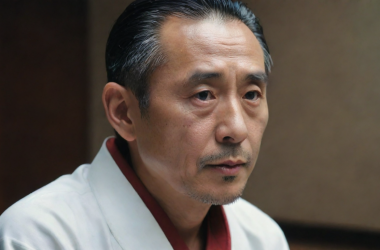When exploring the complexity of human behavior and the phenomenon of mutual judgment, we must first acknowledge that humans are inherently subjective, carrying their own preconceived notions and preferences. With this premise, each of our communications and judgments is filled with personal bias. Though words like “objective” and “rational” are often on our lips, their ideal states are almost unattainable for humanity. Every decision and opinion we have is influenced by our life experiences, environment, media impact, relationships of interest, and the deep-seated psychological and physiological needs.
After deeply understanding these vulnerabilities of human nature, we also see that these are the basic facts of human interactions and discussions. Differences and disagreements among us are normal, while consensus is a rare exception. This rule is pervasive, whether in national policy, business competition, or debates on social platforms.
When it comes to evaluating ourselves and others, we often adopt a tolerant and beautifying attitude towards ourselves but are harshly critical of others. Even those who harbor feelings of inferiority will deep down paint a glorifying halo around themselves. This self-centered tendency leads us to often be intolerant of reminders or suggestions from others, seeing them as malicious.
For those who hold power, this phenomenon is even more pronounced. The greater the power, the weaker the tolerance for self-criticism. Throughout history, emperors and those in power could not tolerate being questioned. Similarly, in private companies, bosses must be especially wary of the widespread peril of narcissism. Bosses must be mindful of their dominant position and sensitivity to criticism in public expressions, cultural construction, business discussions, and interactions with colleagues.
To build a healthy team environment, bosses and leaders need to “cage” their prejudice. They can establish a mechanism where team members can collectively correct the leader’s decisions by encouraging self-inquiry, self-criticism, and even rewarding those who offer constructive criticism. In private companies, where the boss bears absolute responsibility, and hence authority, it is vital to let team members exercise initiative and wisdom for the long-term growth of the company.
Lastly, if we engage in content creation or IP development, we will find that bias and emotional play in this process are even more fascinating. A successful IP can trigger the emotions of a specific group, meet their needs, or match a particular societal scene—behind this lies a profound insight into public preferences and expectations.
Influence and emotions cause and effect each other, every successful hit will make you beloved by some and disgruntled by others. Preferences and prejudices always accompany each other, with favoritism and bias being parallel phenomena. To form a clear stance, to exhibit a unique personality, to convey sincere emotions—all of these place us under public scrutiny.
In the process of being scrutinized and consumed, countless praises and demotions are generated. A misstep in strategy could lead to irreparable failure. As public figures, we enjoy the benefits brought about by emotional leverage, but we also face the deepest emotional harms.
How to relieve such pressure? At present, I do not have an immutable answer, perhaps switching roles is one way. Transforming malice into goodwill and passing on this goodwill to those you can influence, not indulging in vanity, nor getting carried away with pride, nor becoming arrogant. Realizing that one is simply a vessel for others’ subjective feelings, hence achieving emotional detachment from work.
In the eyes of the outside world, as a public persona, I must infuse my work with all the vigor of life, nurture it with emotion, and manage it with my day-to-day existence. But this is just an objective business entity; it must translate accolades into tangible profits, rather than define the meaning of your life.
In private, I am a real subjective individual, a person full of biases, who enjoys expressing my views and judgments. If goodwill can be transformed and applied at work, then malice too can be turned into clear water, passing through without leaving a trace. I maintain my professional image and set aside subjective emotions for the market to scrutinize, remaining clear-headed amidst the chaos of the world. Pure praise, like clouds passing by, is unrelated to the individual—it is an acknowledgment of my work by others.
Therefore, I, as a flawed and biased individual with a conscience and ability to introspect, engage with the outside world. The pursuit of success is in fact a showdown with this prejudiced world and with my own inner self.
PrejudiceWorldRushing Towards Head-on





